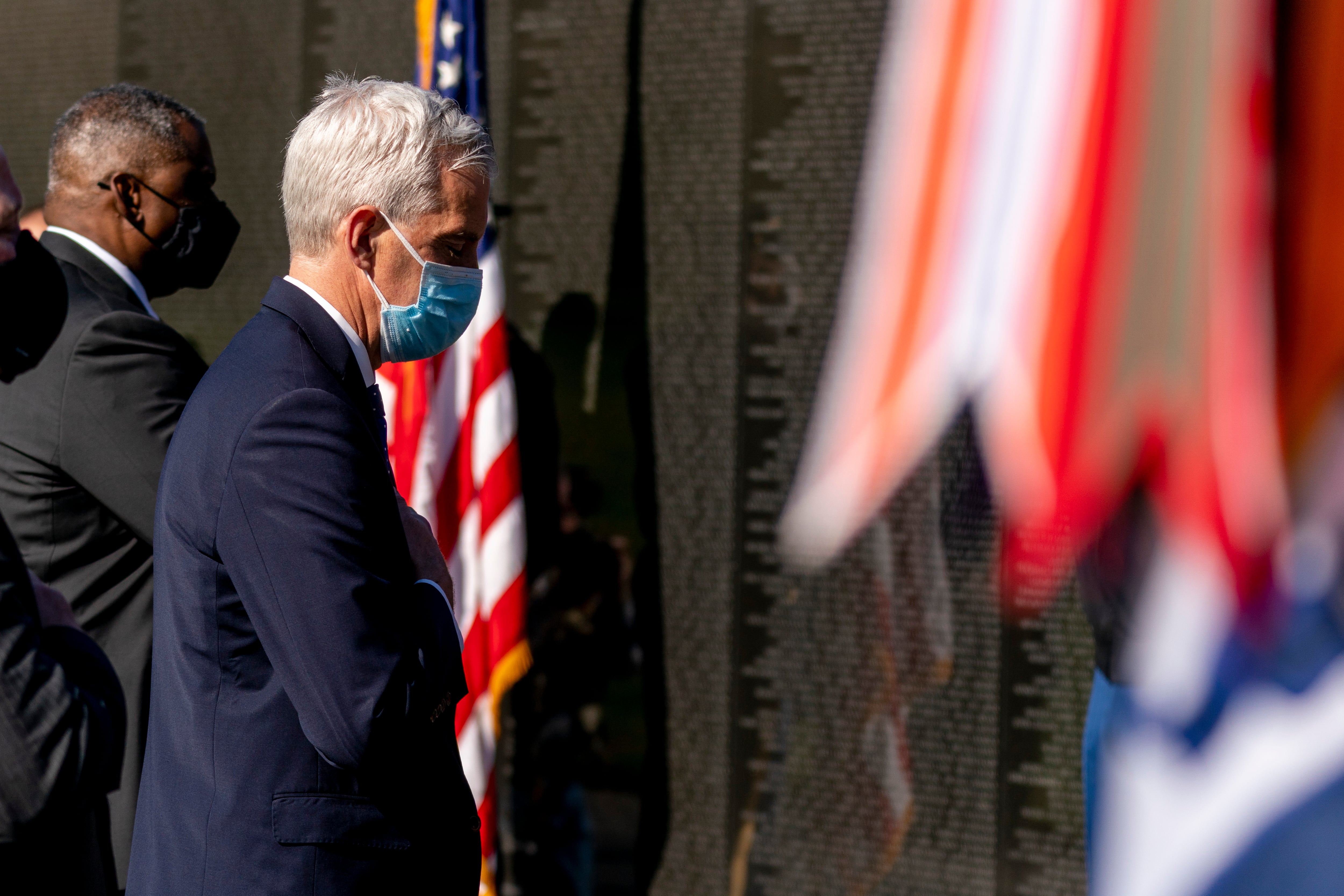President Joe Biden is directing Veterans Affairs officials to revamp how they evaluate and approve veterans disability claims related to toxic exposure, with an eye towards dramatically expanding the number of veterans and illnesses eligible for compensation.
The move, scheduled to be announced as part of the White House’s Veterans Day commemoration, comes just a few months after VA officials for the first time began granting presumptive benefits status to some victims of burn pit smoke at overseas combat posts.
But the new initiative looks to go even further, according to senior administration officials familiar with the plan.
Under Biden’s direction, VA leaders have developed a new model for how to add more illnesses to the list of service-connected environmental injuries and will spend coming months using it to see how many conditions — and veterans — could benefit from additional presumptive decisions.
RELATED

Officials said those decisions would take into account not only available scientific studies but also other sources, including illness trends compiled from veterans claims.
How many veterans could benefit from the changes is unclear. In the past, Veterans Affairs officials have estimated more than 3.5 million troops were exposed to the toxic smoke from burn pits during overseas deployments over the last 20 years.
But only about 250,000 veterans have signed up for the department’s Airborne Hazards and Open Burn Pit Registry, designed to track illnesses related to burn pit exposure and ease access to veterans benefits.
And since few overseas combat sites routinely monitored air quality and chemical exposure of troops, directly linking those pits to health issues later in life has proven difficult.
Veterans advocates for years have accused the VA of reacting too slowly to reports of widespread respiratory failures and rare cancers among veterans exposed to the smoke, relying too much on partial scientific studies of the problem.
Typically, for veterans to receive disability benefits (which can total thousands of dollars a month) they must prove that their ailments are directly connected to injuries or illnesses which happened as a direct result of their military service. In toxic exposure cases, that usually means combing through military medical and duty records.
RELATED

Many of those are incomplete. With burn pits, for example, defense officials infrequently kept track of what items were being burned or used monitors to check for toxins in the surrounding air. That makes linking any resulting illnesses to specific chemicals nearly impossible.
Part of Biden’s plan will include requiring Defense Department officials to collect better environmental and occupational exposure data in the future.
But to help veterans already suffering illnesses, the new benefits model will look at “a multi-faceted scale to evaluate the strength of scientific and other evidence and allow VA to make faster policy decisions on key exposures.”
That includes a 90-day review of numerous rare cancers believed linked to military burn pits, with recommendations on whether they should be given fast-track benefits status.
Biden’s son, Beau, died from brain cancer years after his deployment to Iraq with the Delaware National Guard. The president has indicated in the past that he believes exposure to burn pit smoke may have contributed to his son’s death.
RELATED

VA officials are also planning new public service announcements to encourage more veterans to apply for disability benefits, to give them a broader understanding of the illnesses veterans believe are connected to burn pits and other toxic exposures.
“The more data that we collect there, the better informed we have to be able to understand what it is that individuals are dealing with,” a senior official said.
The administration is also planning a new hotline early next year specific to military toxic exposure issues, to help veterans better understand what they may already be eligible for in terms of medical care and financial benefits.
Lawmakers have discussed legislation to approve more conditions and individuals for veterans benefits related to toxic exposure issues, but those plans have been stalled in Congress for months.
Leo covers Congress, Veterans Affairs and the White House for Military Times. He has covered Washington, D.C. since 2004, focusing on military personnel and veterans policies. His work has earned numerous honors, including a 2009 Polk award, a 2010 National Headliner Award, the IAVA Leadership in Journalism award and the VFW News Media award.









